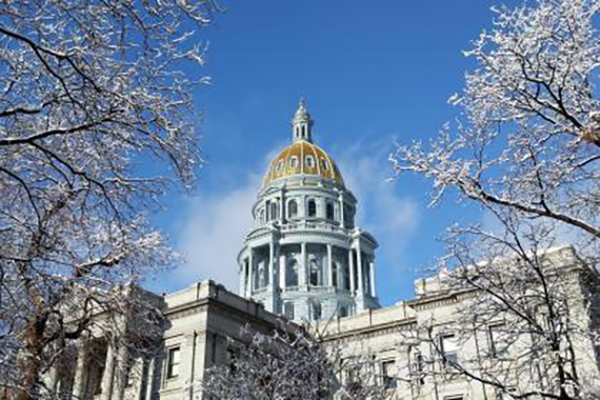Post Script: The article below was written four days before the final gavel fell on the legislative session. In those four days, bills were killed, stitched onto other bills, and passed in a whirlwind of action designed to remold the face of Colorado. A case in point is SB 236, the bill reauthorizing the PUC. In the final two days of the session, three other bills were amended onto it, creating an 80+ page Frankenstein that we are still digesting. And the Majority’s agenda was largely achieved due to a Saturday session and all-night action with debate limits imposed. It remains for Colorado voters to decide whether to approve Sports Betting and a permanent suspension of the TABOR Refund, both referred measures from the legislature for the November 2019 ballot.
The legislature is barreling toward a close on May 3. Several weeks of late evenings to conduct committee hearings and floor action have now given way to a virtually all-nighter on April 29-30 as the Senate pushed through two major climate bills between 2 and 4 am. The Senate then continued on for another hour or more as it attempted to overturn previous actions before recessing and reconvening at 9:30 am. The Zombies are here!
Notwithstanding the late nights, many bills are still in process and it is clear that not everything on the agenda may be completed before the final gavel falls. There have even been whispers about a special session, although that still appears remote. The majority party believes they have a mandate from the voters to essentially remake Colorado in the image of California and want to accomplish this in their first session.
A series of climate change bills is working through the chambers and a good deal of cut-and-paste is occurring as sponsors ensure that if one bill doesn’t get through, another can accomplish a similar result. The major climate bill, HB 1261, has passed the House and is awaiting final vote in the Senate. That bill directs the Air Quality Control Commission to propose measures to achieve the state’s aggressive GHG reduction goals of 26% by 2025, 50% by 2030, and 80% by 2050. Measures would be proposed for emissions sources statewide. Similar provisions have been incorporated into SB 96, originally introduced as a climate data bill. HB 1314 is a bill establishing program to assist workers and communities displaced by transition away from coal-based electricity generation and is echoed in part in HB 1313, a bill pushed by Xcel Energy to allow complete cost recovery for aggressive carbon reduction implementation. HB 1314 faces a rocky path because although it funds two employees whose job would be to seek funding and identify assistance measures, the actual funding of an assistance program would likely be in the hundreds of millions of dollars. HB 1313 is similarly hung up because it has become a legislative Christmas tree, with provisions including portions of HB 1037 (another worker transition bill that was killed by its sponsor) and other “ornaments” that benefits various constituencies. The eloquence of the minority party Senators in arguing against both HB 1261 and 1314 cannot be overstated. Go to www.leg.state.co.us, click on Watch and Listen and the Archived Senate sessions for April 30 to see these incredible folks in action as they defend Colorado’s coal communities.
The family and medical leave bill, a high priority for the Governor and Democrat legislators, is delayed in implementation, awaiting an actuarial study to assure solvency. That program was estimated at around a billion dollars, to be funded by an employer/employee fee.
The “blue wave” that brought fresh faces and a progressive agenda to the Capitol is finding that the costs both in financial terms and political resistance of changing Colorado overnight are proving higher than anticipated.







